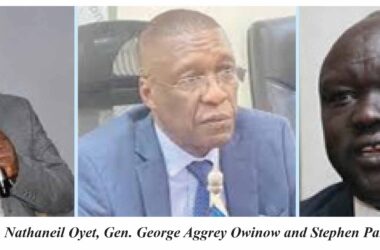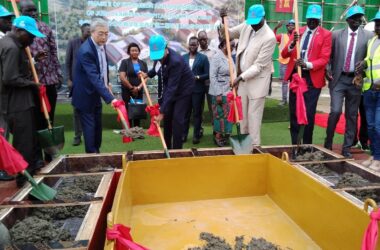Kei Emmanuel Duku
Ministry of Justice and Constitutional Affairs, with the support of development partners, yesterday launched a new strategic plan aimed at addressing unfinished tasks outlined in the 2018 peace agreement.
The plan outlines both short-term and long-term priorities to be achieved before the end of the extended transitional government period.
Developed in 2018, the plan consists of six chapters, with Chapter Three focusing on the ministry’s strategic goals.
In the next two years, the Ministry of Justice and Constitutional Affairs intends to promote and protect human rights, harmonize South Sudanese laws to fit regional standards and establish an independent public prosecution institution, a legal training institute, and policies for codifying customary laws.
Sheila Ngatia, Deputy Resident Representative of the United Nations Development Programme (UNDP), commended the launch of the strategic plan, emphasizing its role in strengthening justice, the rule of law, and constitutional governance in South Sudan.
She noted that the plan would serve as a foundation for accessible, transparent justice systems that address challenges to nation-building, peace, stability, and development.
“Justice and the rule of law are fundamental pillars for peace, stability, and prosperity in South Sudan,” Ngatia stated.
“They safeguard human rights, build trust in institutions, and resolve conflicts. This Strategic Plan is a roadmap for strengthening the social contract between the state and its citizens.”
Ngatia urged the government to prioritize justice for vulnerable communities in remote areas and ensure their voices are heard.
She added that UNDP would continue to provide technical support and capacity-building to the Ministry of Justice and Constitutional Affairs.
Musa Gassama, Director of the Human Rights and Protection Division at the United Nations Mission in South Sudan (UNMISS), appreciated the government’s efforts to strengthen the legal and justice systems and ensure access to justice.
He acknowledged the progress made but noted that more work is needed to achieve the rule of law and protect human rights.
Gassama highlighted the ongoing inter/intra-communal violence in some parts of South Sudan, which has undermined stability.
He emphasized the lack of judges within the ministry as a major challenge affecting the performance of transitional justice mechanisms and customary courts.
He further added that UNMISS will continue to provide technical assistance and capacity building to judges across the country, in line with United Nations Human Rights Council resolutions and its mandate.
The mission will also strengthen its working relationship with government entities and provide mobile courts in conflict-affected areas to protect human rights.
Gassama reiterated UNMISS’s commitment to supporting the transitional government in the next two years by offering technical support, assisting in decision-making, and investing in institutional capacity building to achieve the goals outlined in the revitalized peace agreement.




